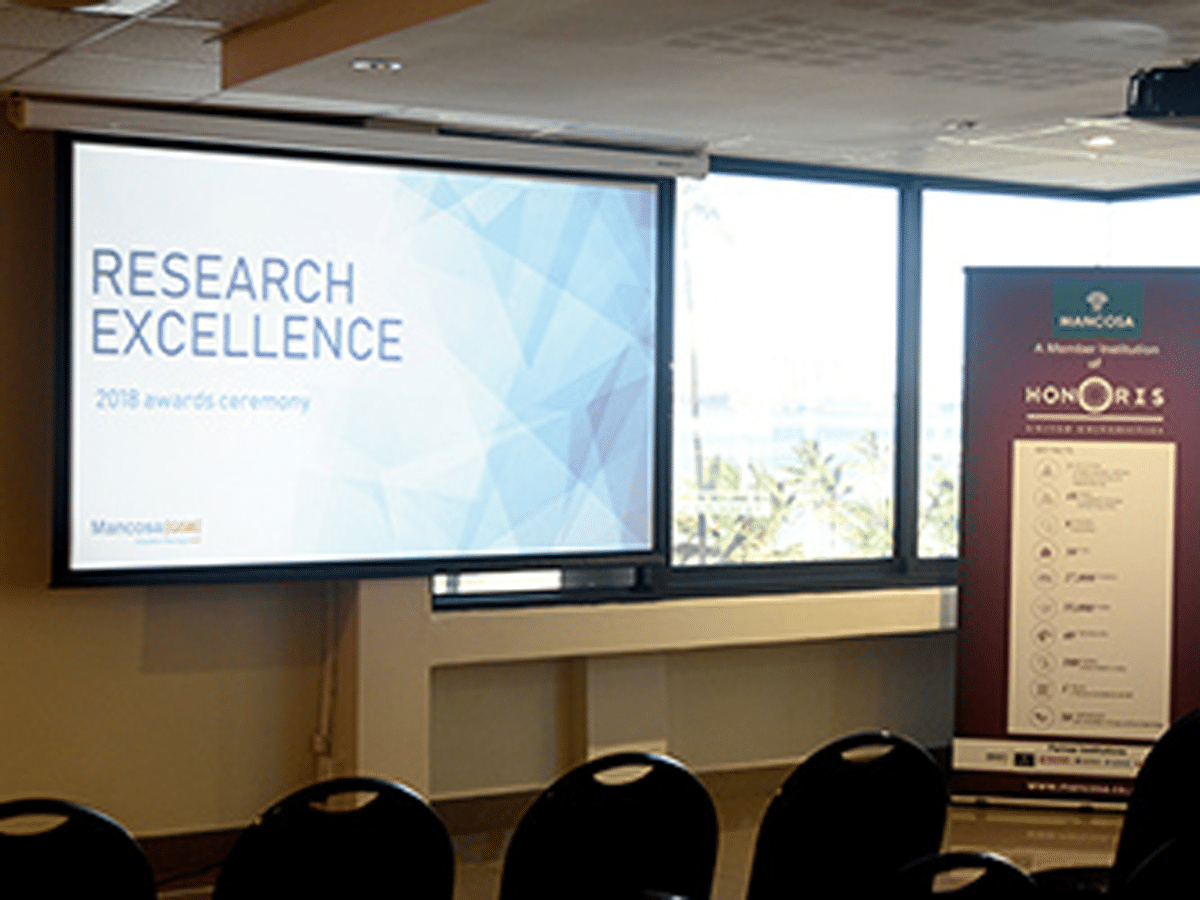The Future of Public Administration
Public Administration is evolving rapidly, influenced by global trends, technological advancements, and shifting societal needs. The role of public administrators is expanding beyond traditional government functions to embrace digital governance, sustainability, and social innovation. As we look ahead, the future of Public Administration promises to be more dynamic, data-driven, and citizen-centric.

For those considering a career in public service, staying ahead of these changes is essential. A Bachelor of Public Administration from MANCOSA provides the knowledge and skills to navigate this evolving landscape. This article explores the key trends shaping the future of public administration and how aspiring professionals can prepare for meaningful careers in this field.
Covered in this article
- The Changing Landscape of Public Administration
- Preparing for a Future in Public Administration
- Addressing Common Concerns About Public Administration Careers
- Conclusion: Shape the Future of Public Administration with MANCOSA
- FAQs
The Changing Landscape of Public Administration
Public administration is evolving rapidly, driven by digital innovation, data-driven decision-making, and a shift toward citizen-centric governance. Governments worldwide are embracing technology, sustainability, and ethical leadership to enhance service delivery. Understanding these changes is crucial for aspiring public administrators who want to stay ahead in a field that is becoming more dynamic and impactful than ever.
1. Digital Transformation in Government
Governments worldwide are embracing digital solutions to improve efficiency, transparency, and accessibility. E-governance, Artificial Intelligence (AI), and big data analytics are reshaping how public services are delivered. From smart cities to automated public records, digital transformation is making governance more responsive and inclusive.
2. The Rise of Data-Driven Decision-Making
Data analytics is revolutionising public administration. Governments are using real-time data to track social issues, optimise public spending, and predict future challenges. The ability to interpret and apply data-driven insights is becoming a crucial skill for public administrators.
3. Citizen-Centric Governance
Modern public administration is shifting from a bureaucratic model to a citizen-first approach. Policies are now designed with public participation, ensuring that communities have a say in decision-making processes. This participatory governance model fosters trust and accountability.
4. Sustainability and Climate Change Policies
With climate change at the forefront of global discussions, public administrators are playing a critical role in shaping environmental policies. Governments are investing in sustainable urban planning, green energy initiatives, and disaster preparedness strategies to mitigate climate risks.
5. Public-Private Partnerships (PPPs)
Collaboration between the public and private sectors is growing. Governments are leveraging private sector expertise and resources to enhance service delivery, from infrastructure development to healthcare management.
6. Ethics and Accountability in Public Administration
Corruption and lack of accountability remain significant challenges. The future of public administration requires stronger ethical standards, transparency mechanisms, and independent regulatory bodies to ensure integrity in governance.
Preparing for a Future in Public Administration
If you aspire to be part of this evolving sector, a strong educational foundation is key. Here’s how MANCOSA’s Bachelor of Public Administration equips students for future-ready public service careers:
Comprehensive Curriculum
MANCOSA’s Bachelor of Public Administration covers essential topics such as public sector management, policy analysis, administrative law, and municipal governance. These modules provide students with a well-rounded understanding of governance structures and public service operations.
Emphasis on Digital and Data Skills
Given the digital shift in public administration, the programme integrates data analysis, digital governance, and smart city management into its curriculum. This ensures graduates are equipped to handle modern public sector challenges.
Focus on Ethics and Leadership
Ethical leadership is a critical competency in public administration. MANCOSA trains students in accountability, transparency, and responsible governance, preparing them to navigate complex political and ethical dilemmas.
Flexible Online Learning
For working professionals or students seeking flexible study options, MANCOSA’s online learning model allows learners to study at their own pace while gaining access to expert faculty and digital resources.
Addressing Common Concerns About Public Administration Careers
A career in public administration offers stability, diverse opportunities, and the chance to make a real impact. However, many prospective students have concerns about job prospects, industry relevance, and career progression. This section answers common questions about the field, helping you understand the benefits, challenges, and potential career paths in public administration.
Is a Degree in Public Administration Worth It?
Yes. Public administration graduates are in high demand across government agencies, non-profits, and international organisations. The sector offers stable career prospects and opportunities to create meaningful social impact.
What Career Paths Can I Pursue with a Public Administration Degree?
Graduates can explore diverse roles, including:
- Public Manager – Overseeing government programmes and policies.
- Local Government Officer – Managing municipal services and community development.
- Policy Analyst – Evaluating and improving public policies.
- NGO Administrator – Leading social impact initiatives.
- Public Finance Manager – Handling budgeting and resource allocation in government agencies.
Are Public Administration Jobs Secure?
Yes. The public sector is known for job stability, competitive salaries, and long-term career growth, making it an attractive option for those seeking a secure profession.
Conclusion: Shape the Future of Public Administration with MANCOSA
The future of public administration is tech-driven, sustainable, and people-focused. To thrive in this evolving sector, professionals need a strong academic background, digital skills, and ethical leadership capabilities.
MANCOSA’s Bachelor of Public Administration equips students with the knowledge and expertise to navigate these changes, ensuring they are well-prepared for impactful careers in governance.
Take the Next Step in Your Public Administration Career
Explore MANCOSA’s flexible, online Bachelor of Public Administration programme today and start your journey towards shaping the future of governance.
FAQs About the Future of Public Administration
1. What industries outside of the government hire Public Administration graduates?
Public Administration graduates are not limited to government roles. They are also in demand in non-profit organisations, international agencies (such as the UN), consultancy firms, think tanks, and corporate social responsibility (CSR) departments within private companies.
2. How does public administration differ from political science?
While both fields study governance, public administration focuses on implementing policies, managing public resources, and improving service delivery, whereas political science explores political systems, power structures, and electoral processes.
3. What soft skills are important for a career in public administration?
Key soft skills include leadership, problem-solving, communication, negotiation, adaptability, and ethical decision-making—all of which are essential for managing public resources effectively.
4. Will artificial intelligence (AI) replace public administration jobs?
AI will automate repetitive tasks like data processing, but human oversight, policy-making, ethical considerations, and public engagement will always require skilled professionals. AI is more likely to enhance public administration rather than replace jobs.
5. How does MANCOSA’s Bachelor of Public Administration prepare students for leadership roles?
The programme includes courses on policy-making, strategic governance, public sector management, and ethics, equipping students with the leadership skills needed for senior roles in the public and private sectors.
6. What global trends are shaping the future of public administration?
Key trends include sustainable governance, increased public-private collaboration, digitalisation of services, decentralisation of government functions, and a greater emphasis on social justice and inclusion.
7. Can I specialise in public administration?
Yes. Public administration offers specialisations in public finance, urban governance, healthcare administration, environmental policy, and international development. MANCOSA’s programme provides a broad foundation, allowing students to focus on areas of interest.
8. What are the biggest challenges facing public administration today?
Challenges include balancing budgets, ensuring transparency, fighting corruption, managing public expectations, and adapting to rapid technological advancements. Public administrators must be innovative and adaptable to address these issues effectively.
9. How can public administrators improve community engagement?
Public administrators can foster better engagement by using digital platforms, holding community forums, implementing participatory budgeting, and ensuring transparency in decision-making. Citizen involvement leads to more effective governance.
10. What are the benefits of studying public administration online with MANCOSA?
MANCOSA’s online programme offers flexibility, access to expert faculty, digital learning resources, and a curriculum tailored to modern governance challenges. It allows students to study while working, enhancing both academic and professional growth.





